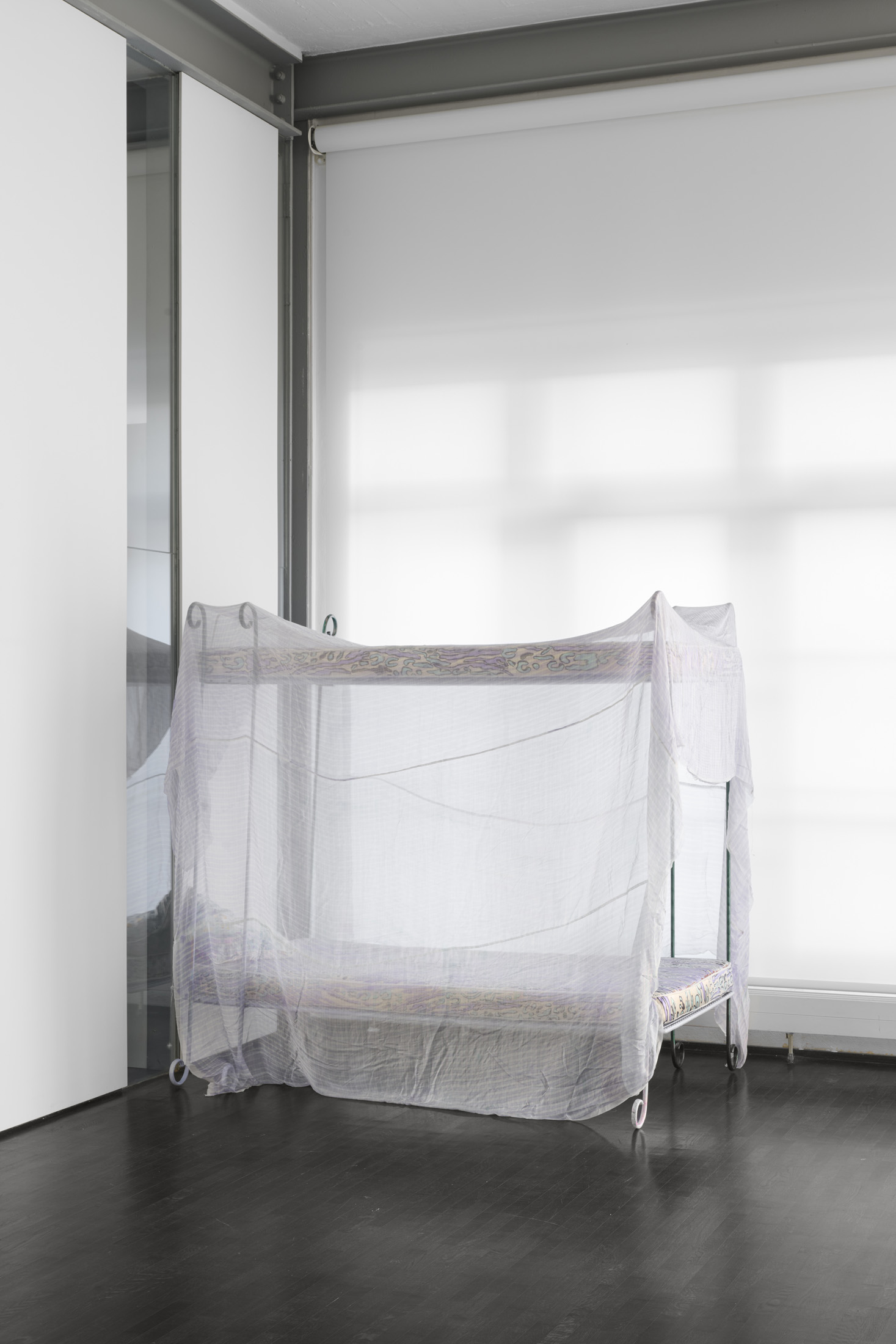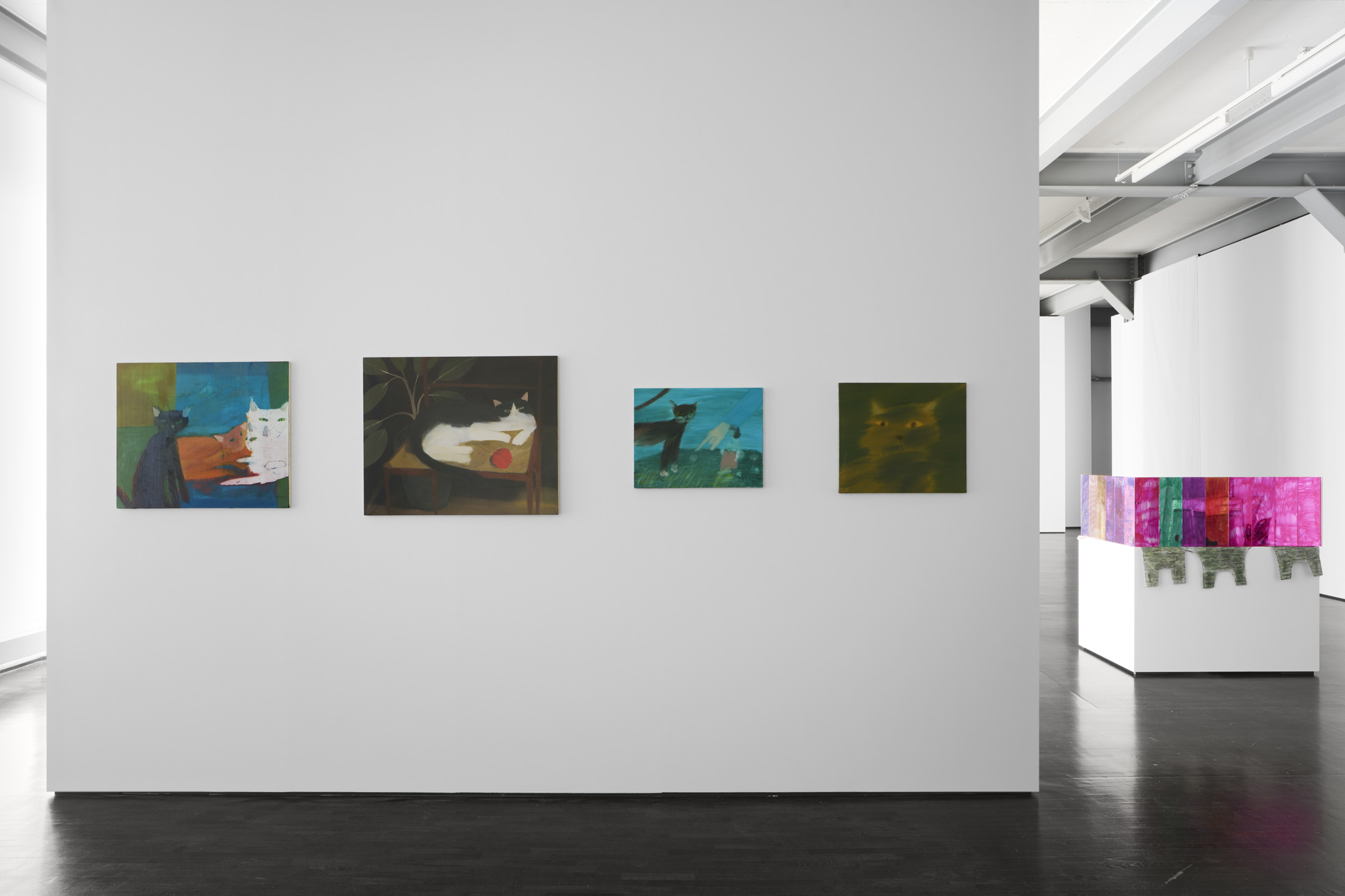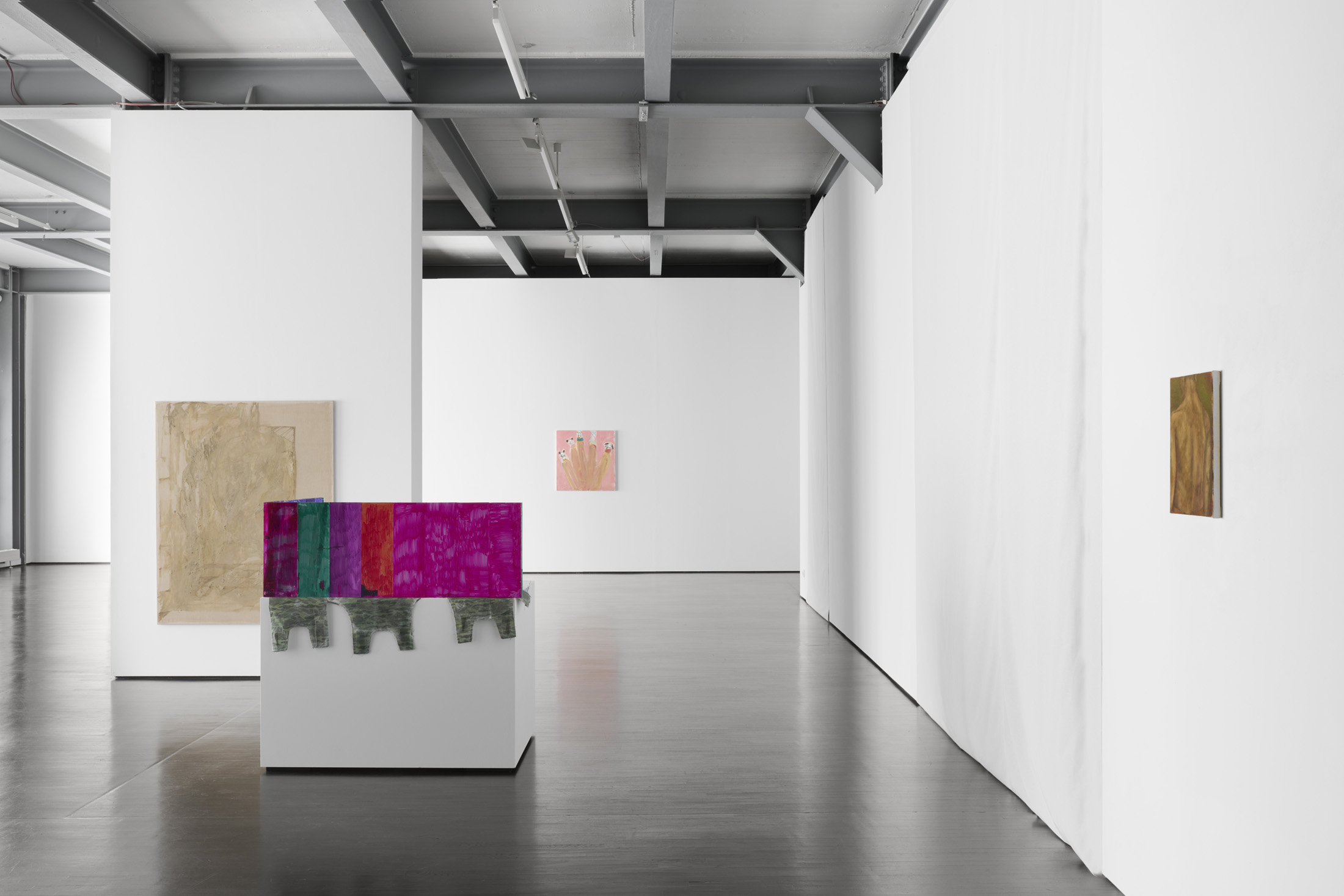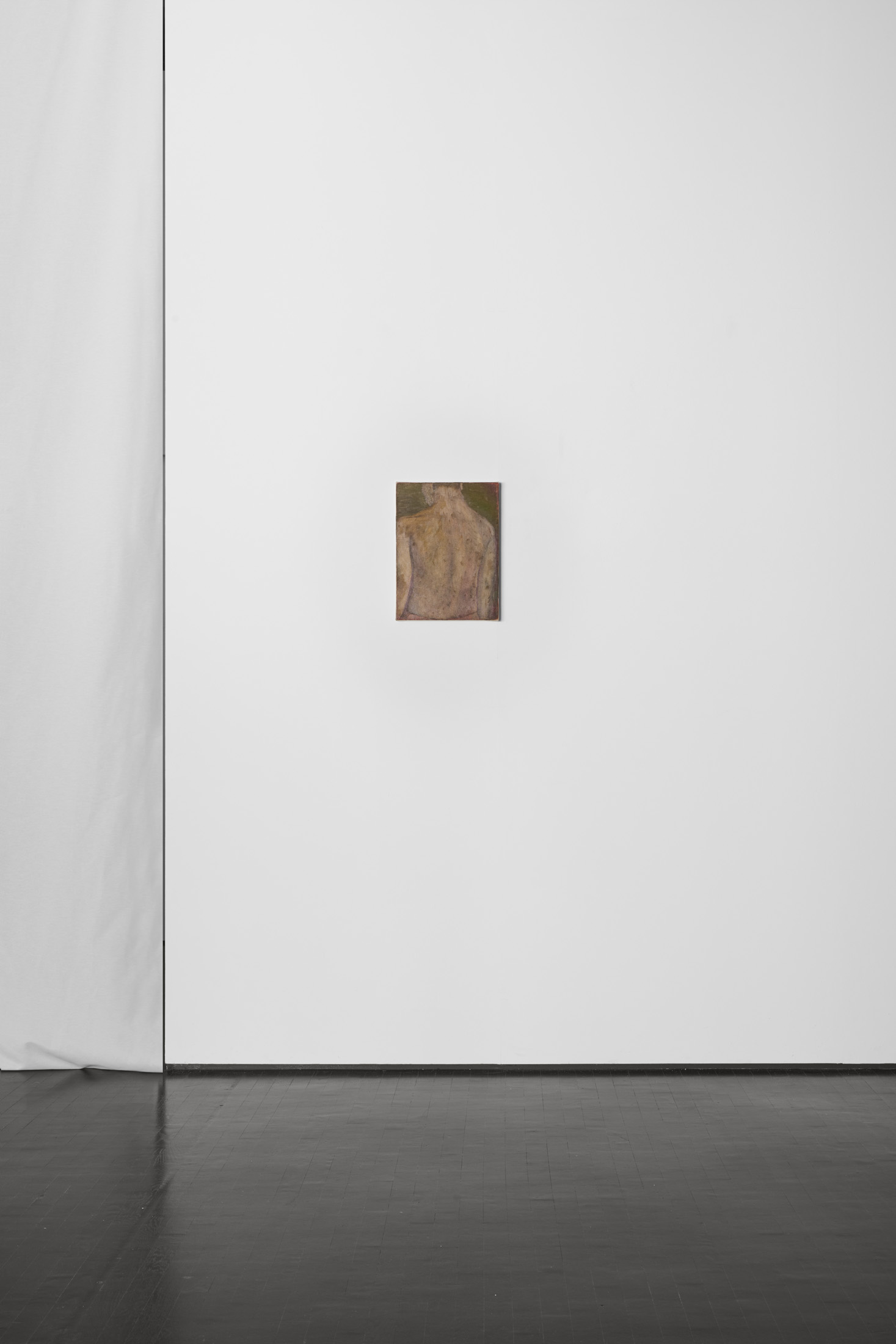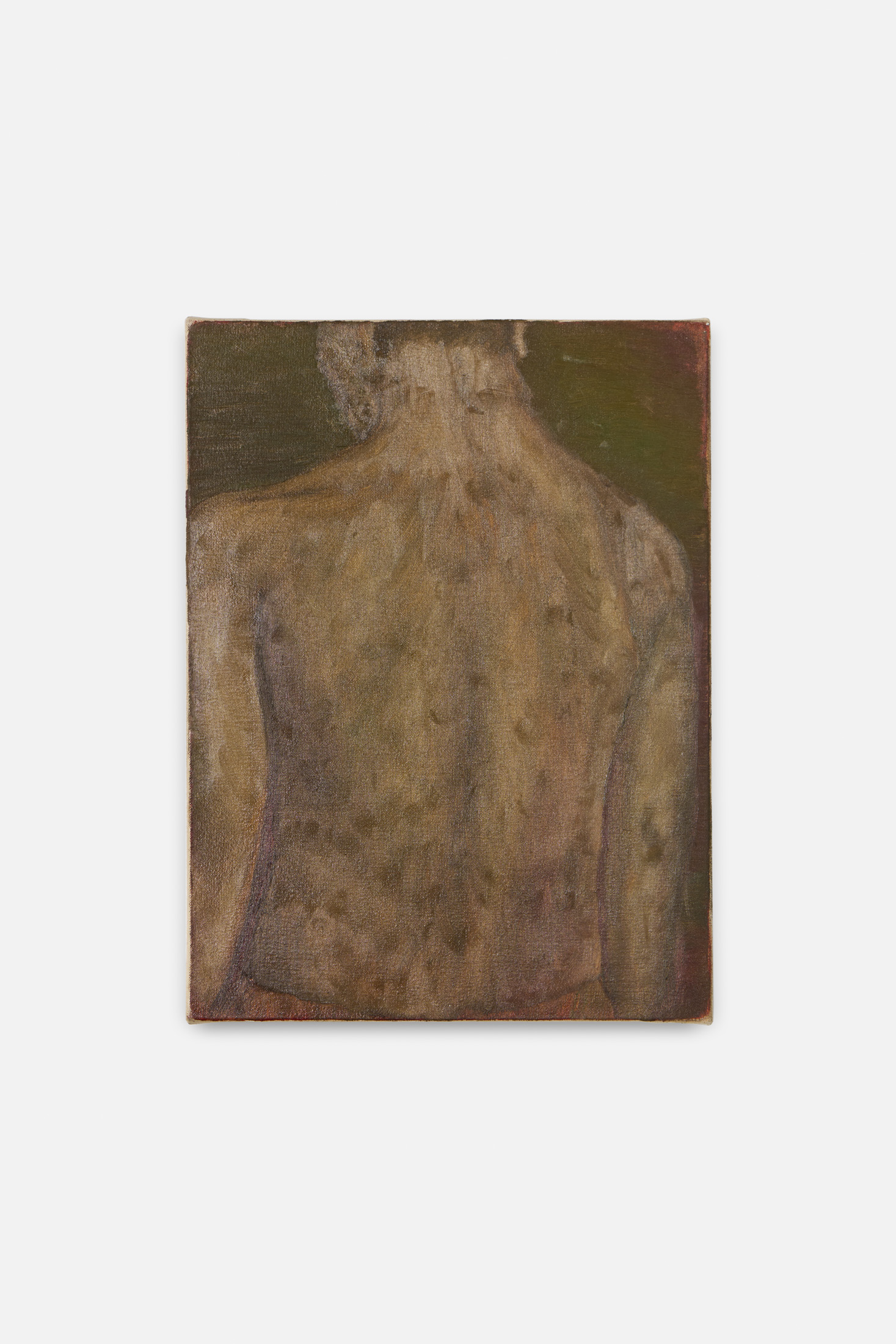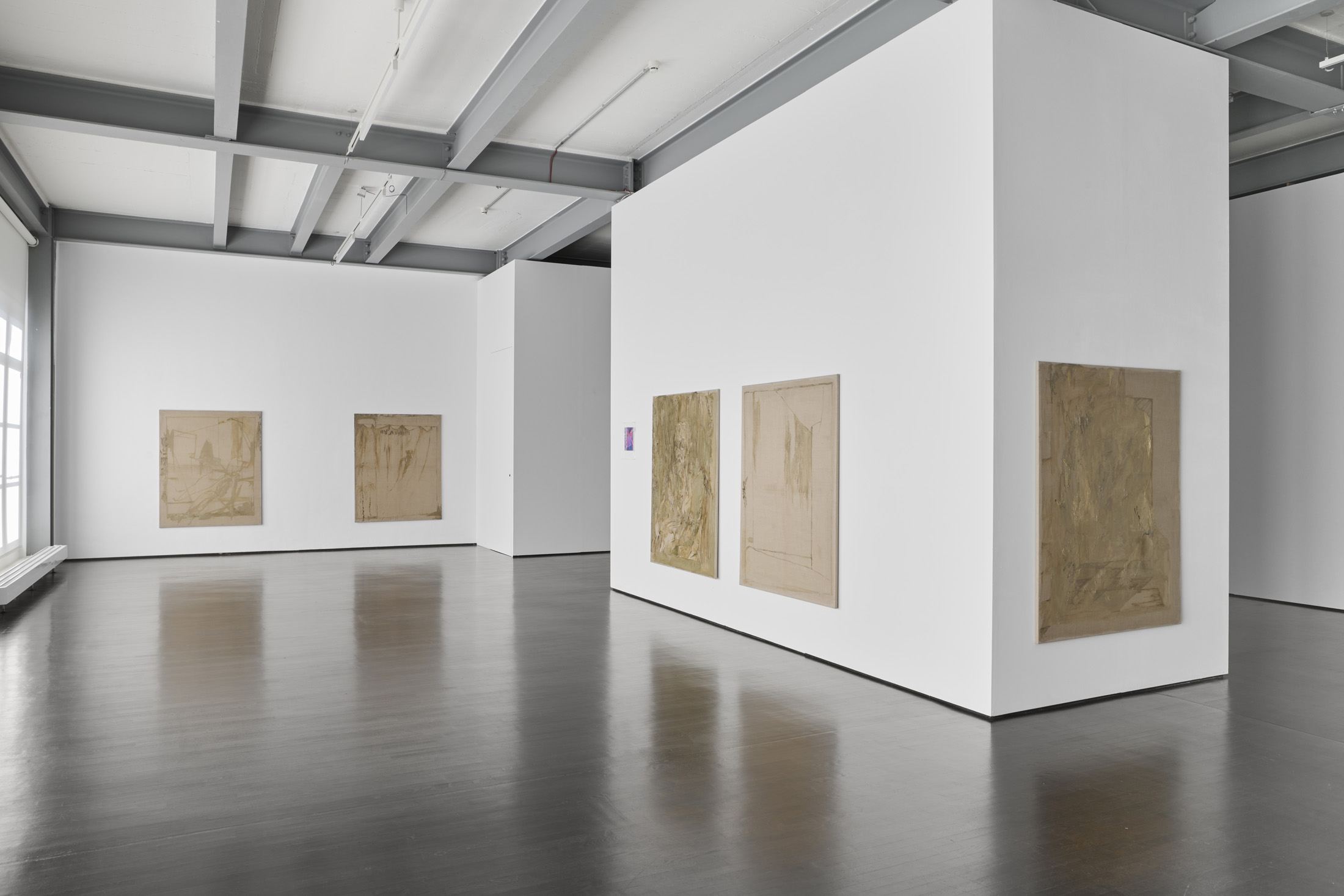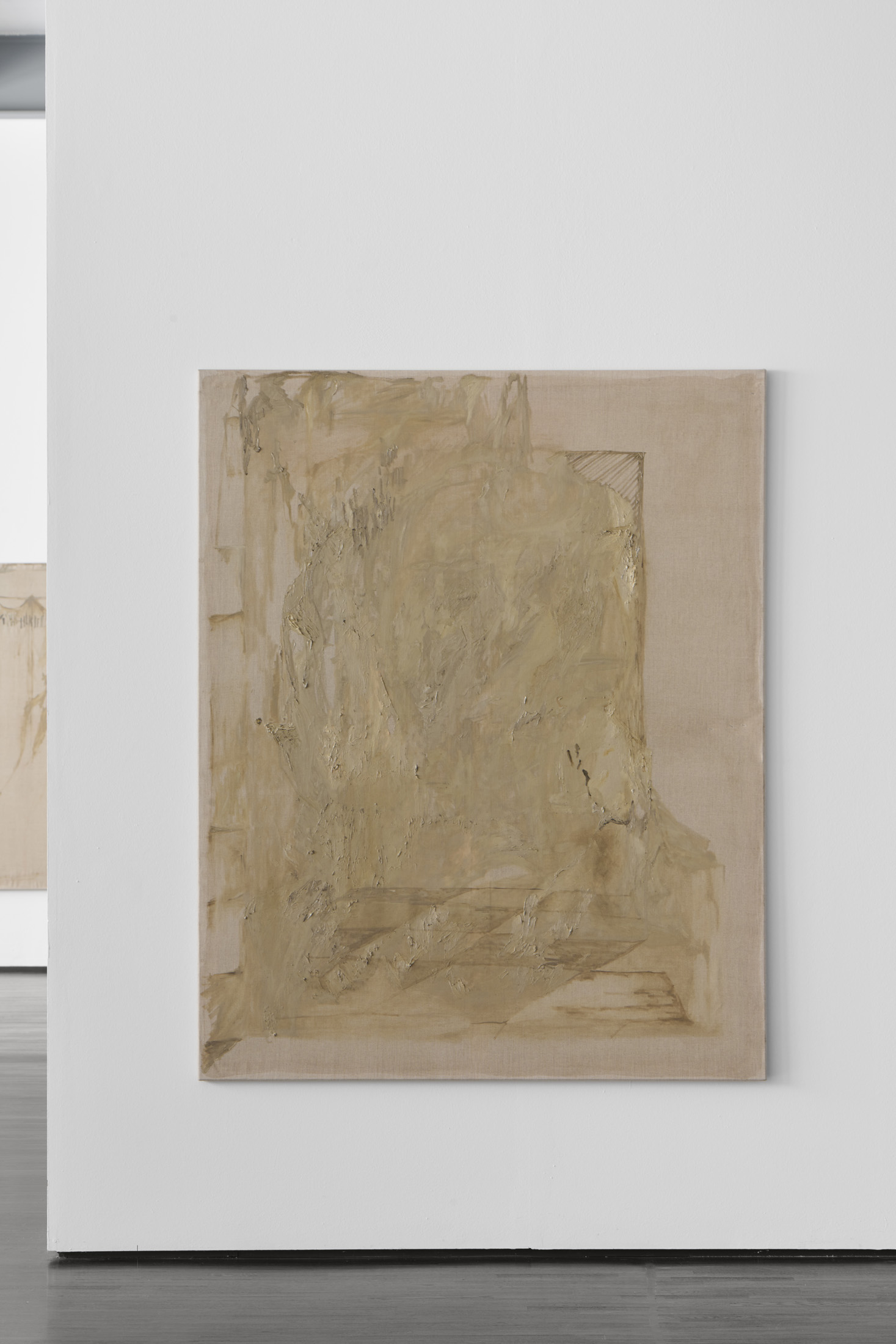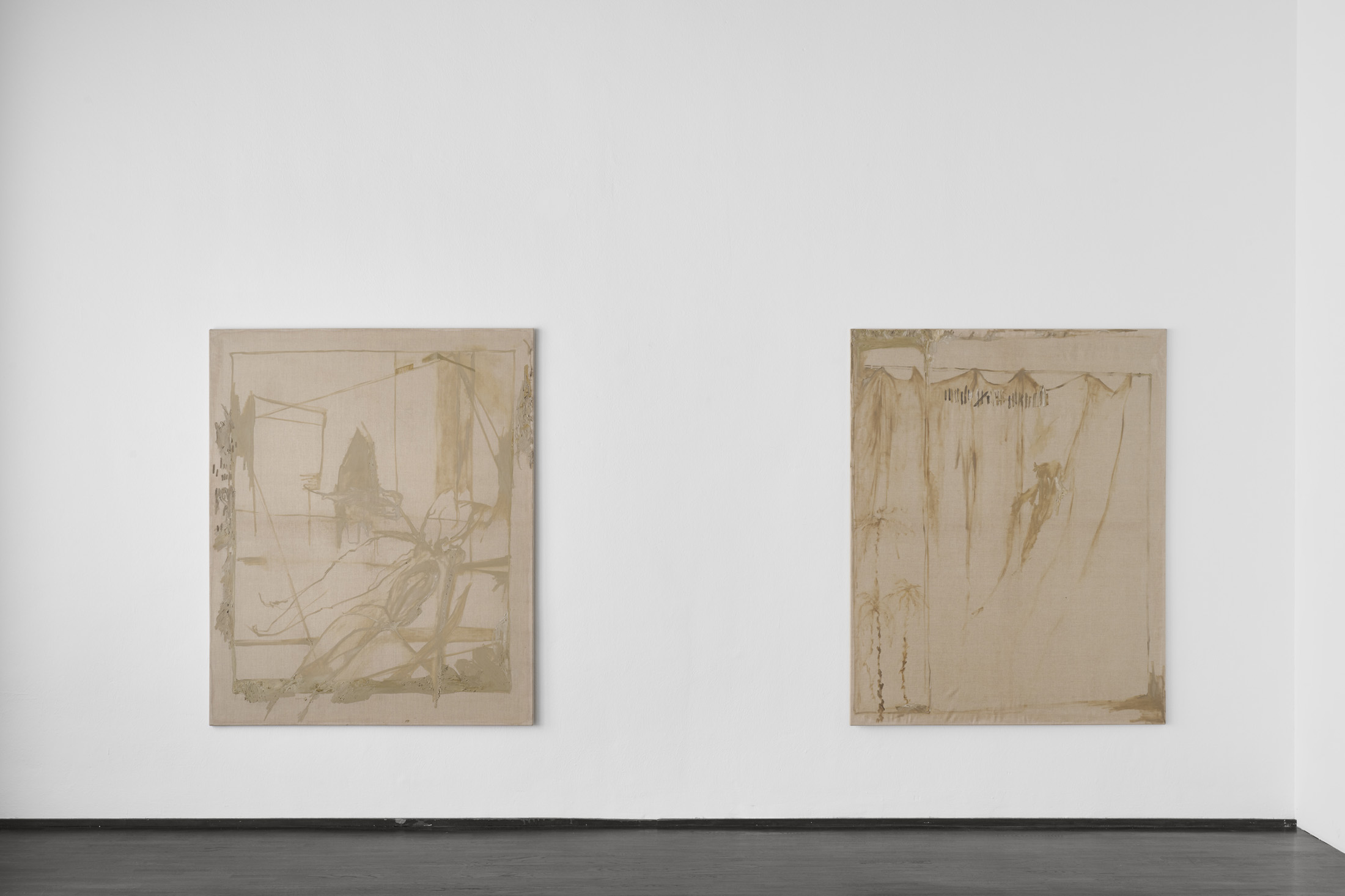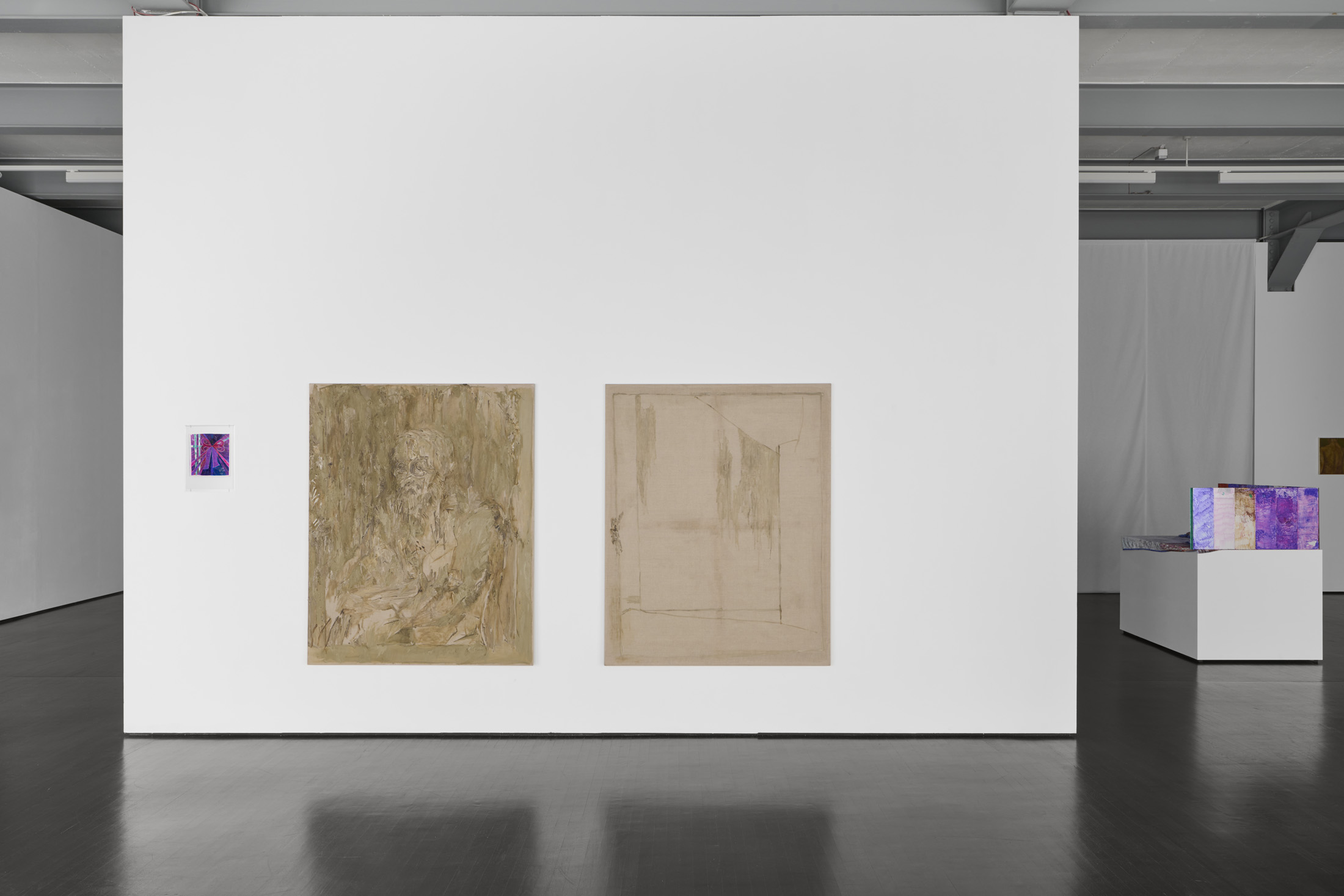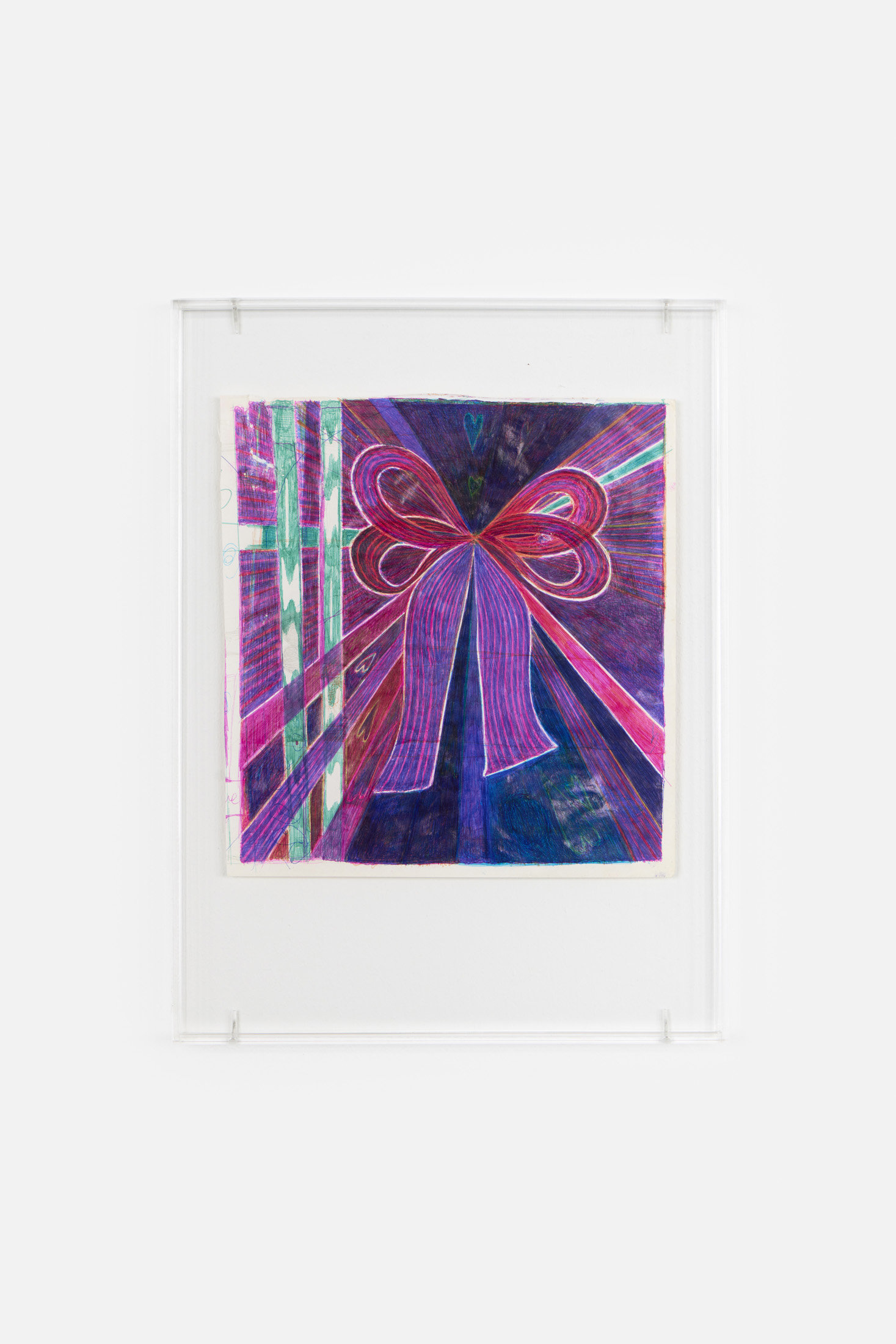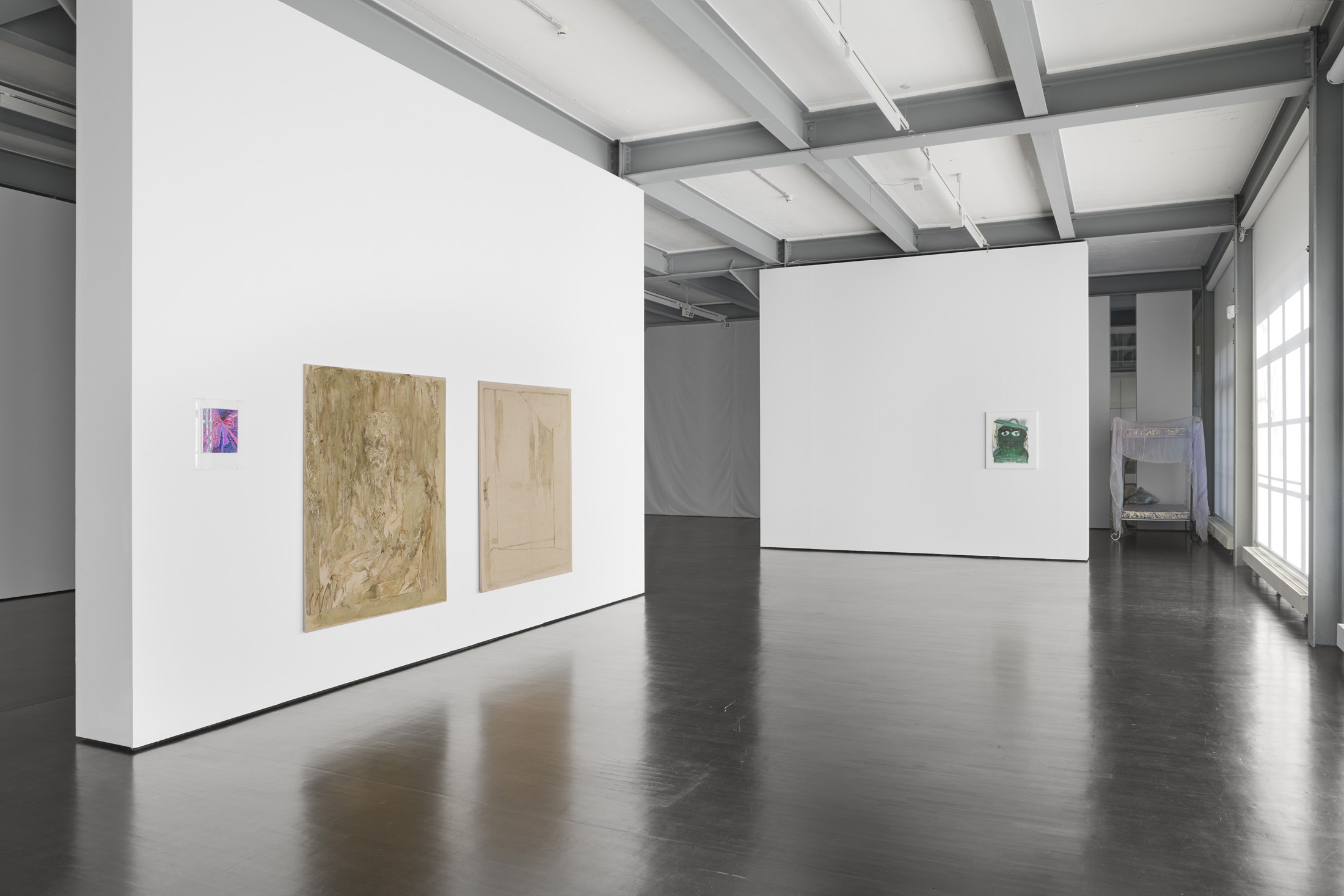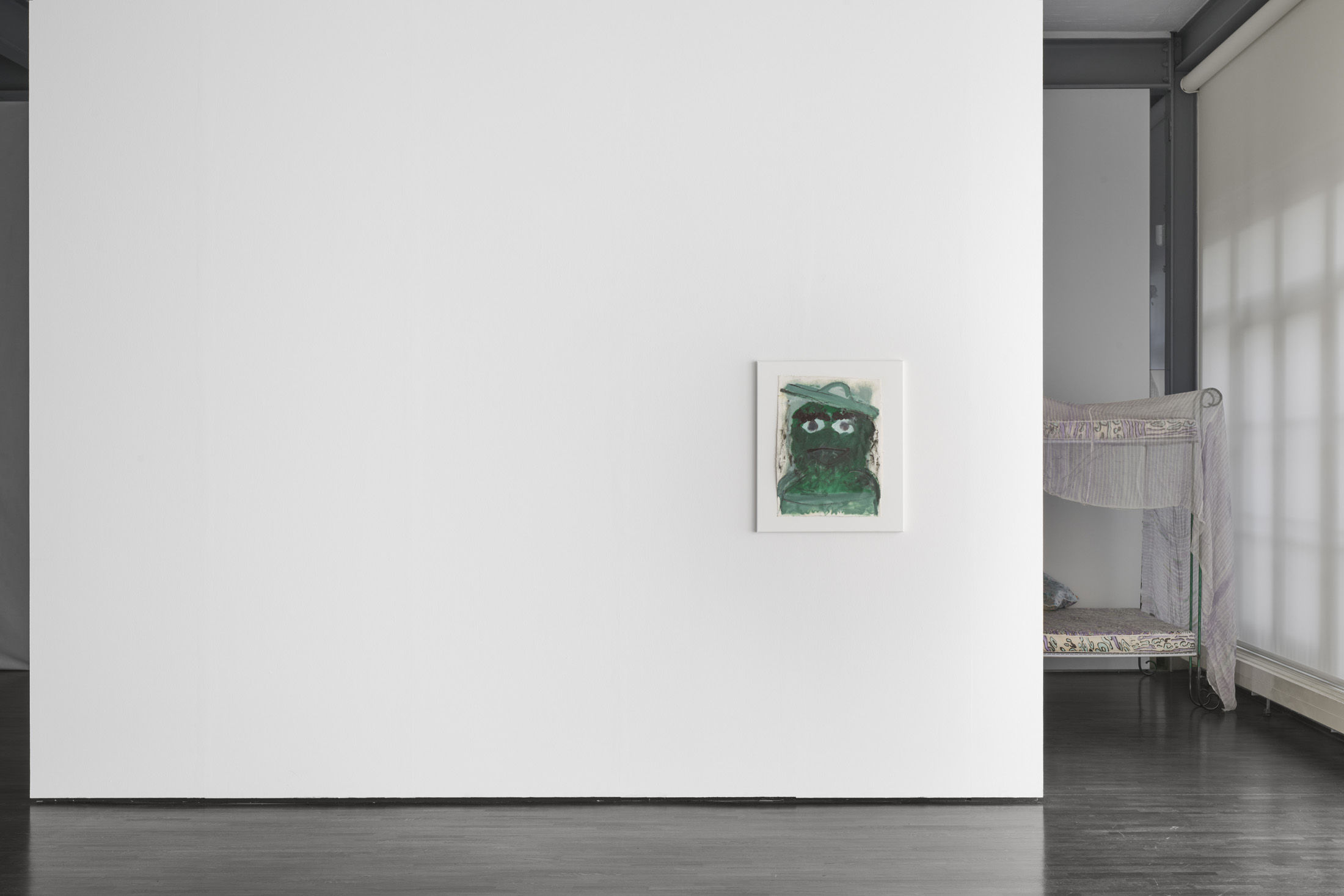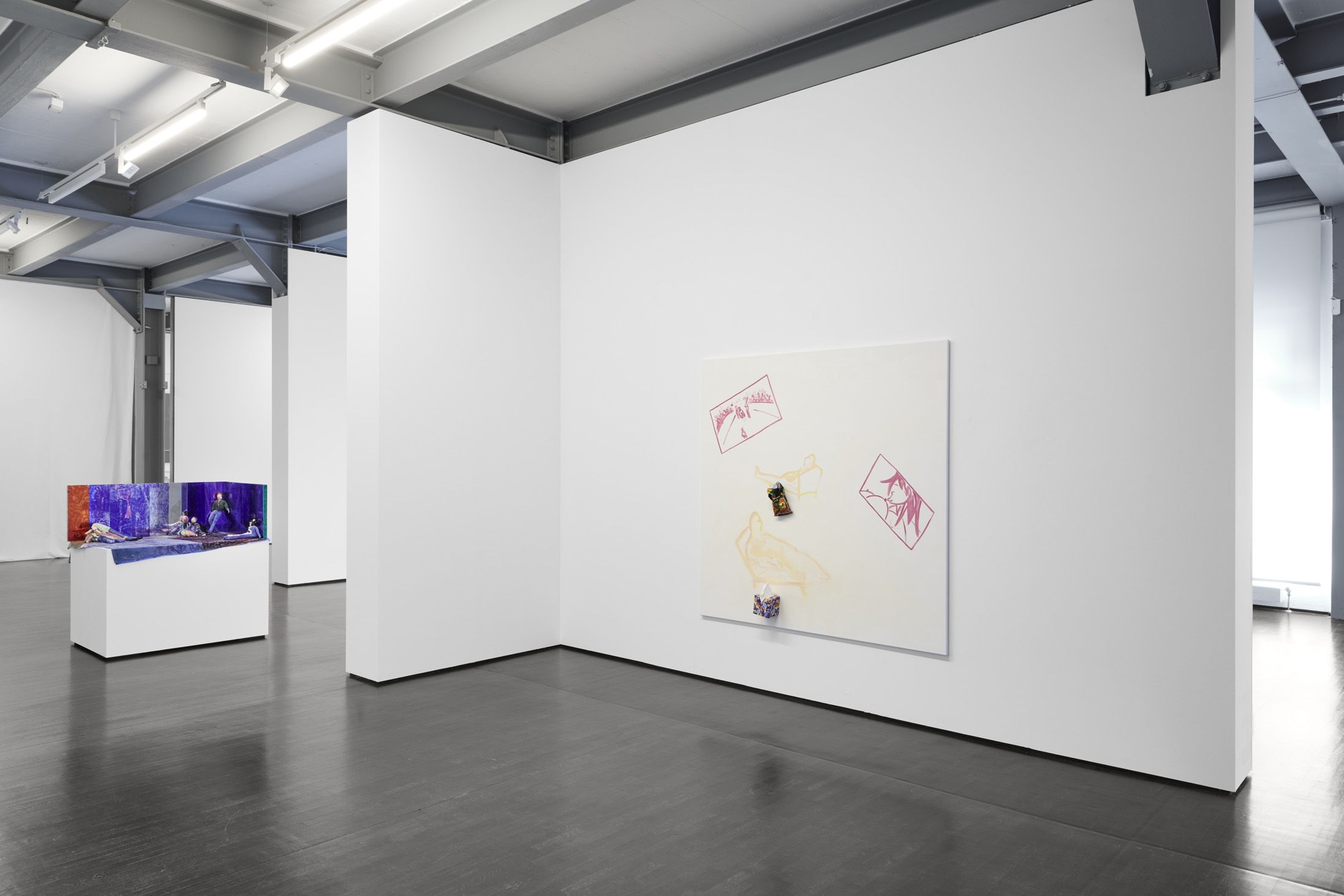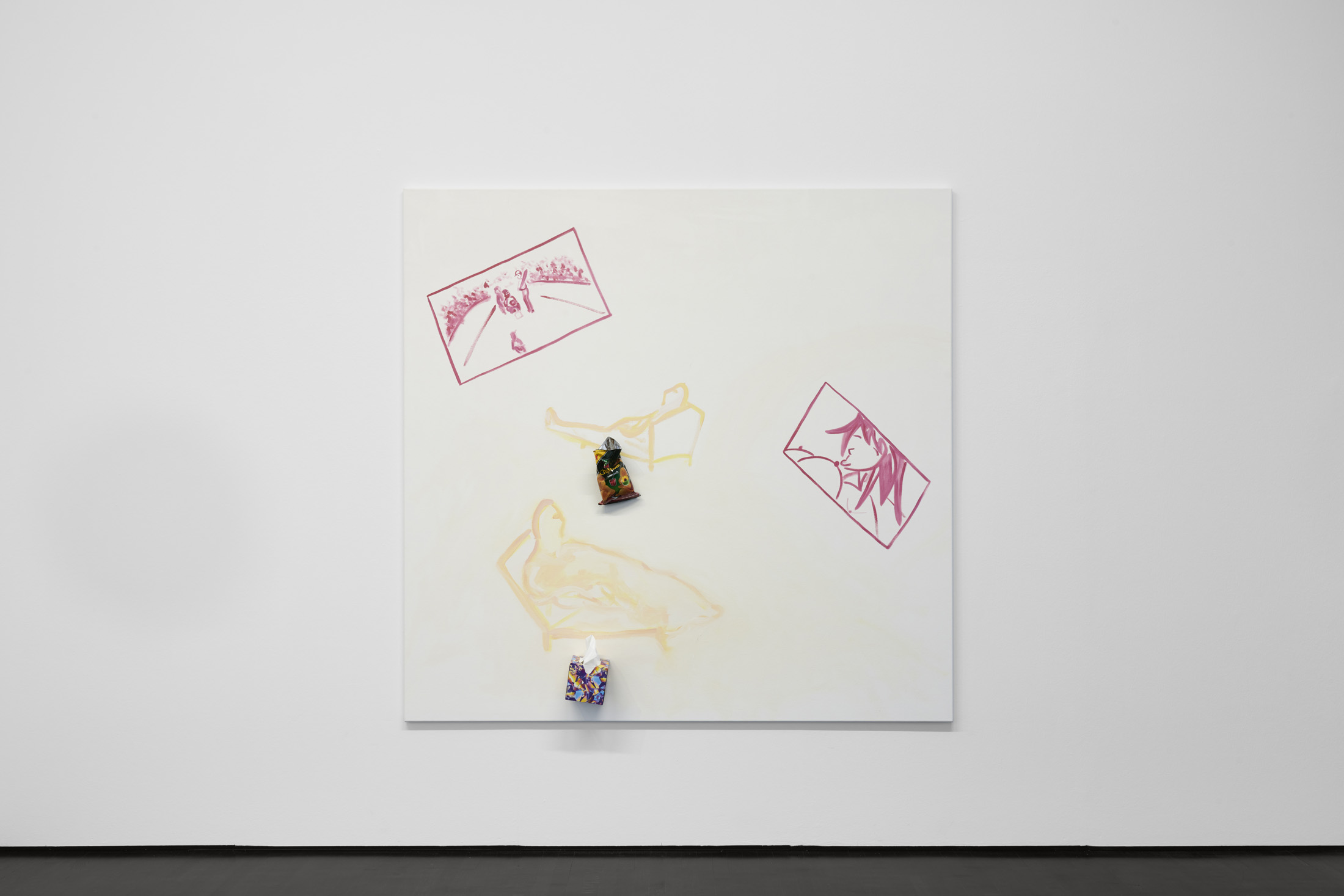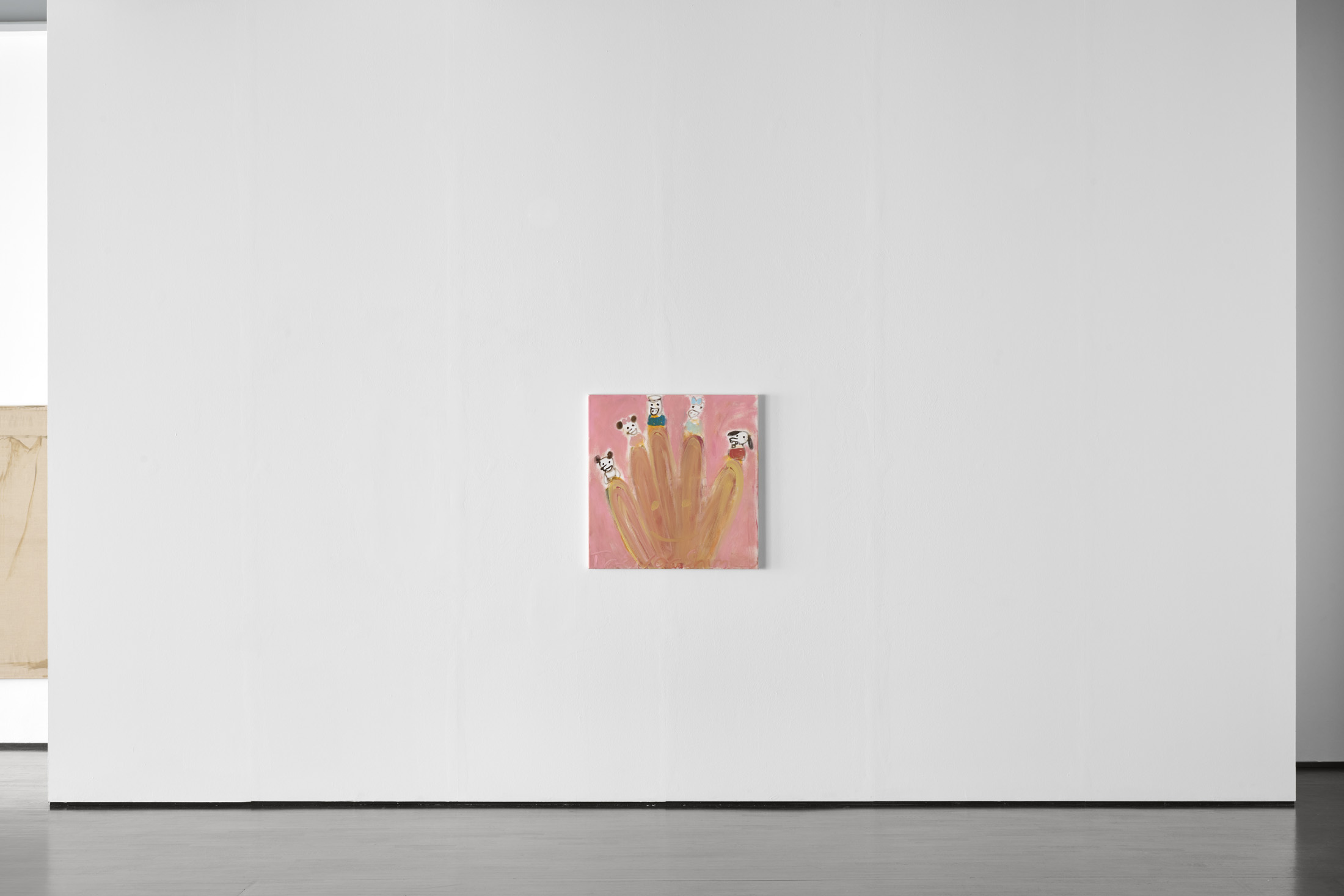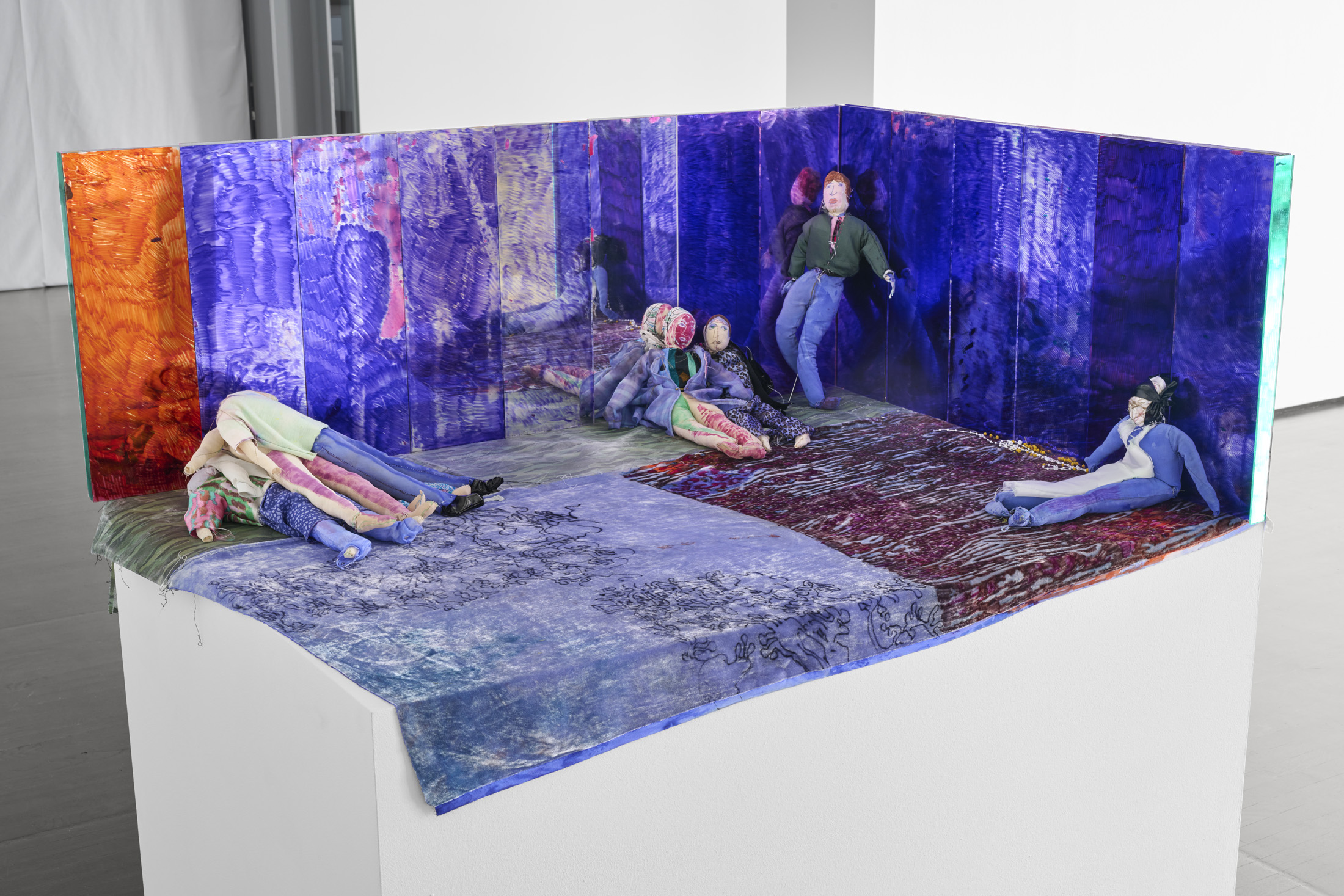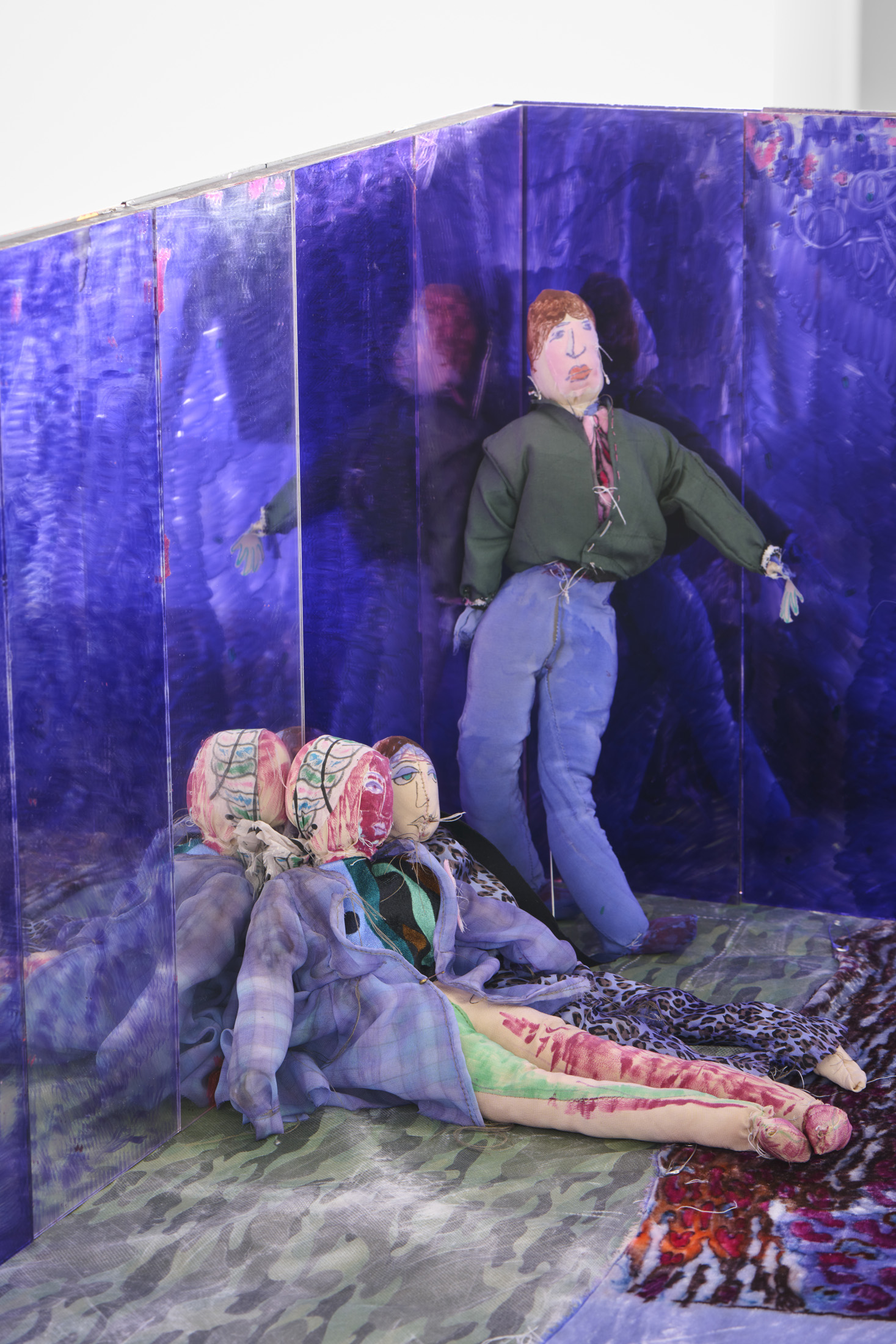Artists: Anne Bourse, Lewis Hammond, Yu Nishimura, Vera Palme, Trevor Shimizu
Exhibition title: Gute Nacht
Curated by: Oriane Durand
Venue: Braunsfelder, Cologne, Germany
Date: March 5 – May 7, 2021
Photography: All images copyright and courtesy of the artist and Braunsfelder, Cologne
The exhibition is inspired by the song Gute Nacht (good night), from Franz Schubert’s cycle “Winterreise” (1827). This first “concept album” in history springs from the Romantic period, but seems to deliver something much more subversive. This piece opens the cycle of 24 songs and sets the tone for the whole. Although the tonality is rather serious and sombre, the text, written by Wilhelm Müller in 1824, develops a clear ambivalence in relation to the concept of love and faith. In the interweaving of text and music itself, a sense of lightness emerges. Even if isolated and foreign – thus begins the lied “I arrived a stranger, a stranger I depart” – , the character seems to escape the yoke of alienation. Also, through the verses ” Love delights in wandering, God made it so ” Schubert seems to distance himself from a conservative definition of love or even to mock it. When the traveller enters the space of the night to say goodnight to his beloved who has left him, he finally appears as free. The political context of Germany and Austria in the 1820s supports this reading in a broader sense. The Winterreise cycle was written during the so-called Restoration, a “wintry” and austere period after the fall of Napoleon. It was marked by censorship and restrictive measures introduced by the new alliance between the Russian and Austrian empires and the Kingdom of Prussia. Together they are redefining a territory where national borders no longer correspond to linguistic realities or even cultural aspirations. The stranger in Schubert’s work could be the one who experiences this alienation. Wandering, in all its forms, whether physical, mental or artistic, brings him a form of emancipation.
The exhibition combines works by five artists – Anne Bourse, Lewis Hammond, Yu Nishimura, Vera Palme and Trevor Shimizu – around a free interpretation of Gute Nacht. It mixes lightness and darkness, joy and nightmare, but at the same time also opens up a fluid transition between reality and fiction, figuration and abstraction. The paintings of Yu Nishimura and Trevor Shimizu depict, each in their own way, ordinary things. Lined up neatly next to each other, the sluggish, sometimes blurred cats with the wide-open, piercing eyes by Yu Nishimura appear to be like an echo of the saying “All cats are grey at night”. It is a moment in which everything becomes indistinct in the darkness, in which one can both be deceived and hide oneself. In Shimizu’s Baseball and Hentai (revised) (2013-2015), the banality of everyday life, like watching TV, is extrapolated through the simplicity of “bad painting”. It is mixed with a crude, even clumsy humour that reveals a deep-seated form of existential fragility. Oscar the Grouch (2015) portrays a fictional character who is both a fantastical and familiar figure and who might reside in children’s dreams.
A deeper darkness creeps into the works of Vera Palme and Lewis Hammond. The five tone-on-tone paintings by Vera Palme trace a thread between figuration and abstraction. Through painterly gestures ranging from short strokes to large constructive lines, they touch the boundaries of material, time and the existence of painting itself: Her Time Stamp Paintings (2022) are memory and spirit, practical action and acute event at the same time. While his anchoring in figurative painting is certain, Lewis Hammond’s work I can feel the changes (2018) also leaves a mystery. We are left in the dark about this figure with its naked back turned to us and the back of its head cut off. The chromatic palette triggers questions of identity here. As for Anne Bourse’s work, it bears witness to an ambivalence between intimacy, phantasmagoria, relaxation and sometimes a kind of subliminal violence. The tension between lightness and brutality is particularly palpable in the work Lever de soleil, coucher de soleil, où je suis en ce moment (1) (2021). The leopard patterns of the patiently hand-drawn mattresses contrast with the metal frame of the bed, which itself is strangely reminiscent of the furnishings of children’s dormitories. A kind of oppression spreads that actually hardly allows for happy memories.
Gute Nacht reflects a sense of permeability that pierces the density of the night.
Oriane Durand, March 5, 2022



